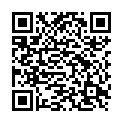|
|
|
| Module code: DFMM-MFSTM-230 |
|
4V (4 hours per week) |
|
6 |
| Semester: 1 |
| Mandatory course: no |
Language of instruction:
German |
Assessment:
Written exam (90 minutes / Can be repeated semesterly)
[updated 20.01.2020]
|
DFMM-MFSTM-230 Management Sciences, Master, ASPO 01.10.2019
, semester 1, optional course
MFSTM-230 (P440-0024) Leisure, Sports, Tourism Management, Master, ASPO 01.04.2017
, semester 2, mandatory course
|
60 class hours (= 45 clock hours) over a 15-week period.
The total student study time is 180 hours (equivalent to 6 ECTS credits).
There are therefore 135 hours available for class preparation and follow-up work and exam preparation.
|
Recommended prerequisites (modules):
None.
|
Recommended as prerequisite for:
|
Module coordinator:
Dr. Birgit Pferdmenges |
Lecturer: Dr. Birgit Pferdmenges
[updated 17.08.2020]
|
Learning outcomes:
Students will develop, expand and deepen their specialized and methodological knowledge about:
the framework conditions in leisure, sports and tourism management
the strategic planning of the topical areas of leisure, sports and tourism organizations.
the restrictions relevant to the provision of services in these sectors (service chain in the overall system of the leisure, sports and tourism industry).
the consideration of parameters outside the company (economic, ecological, technical, social, political, legal framework conditions)
the consideration of internal company parameters (company goals, company philosophy and culture, leadership understanding, distribution of power between owners, management, works council, operational and structural organization, working conditions, market position and company earnings).
the analysis of current developments, market and competition parameters in a regional, national and international context
structural models and system management in the leisure, sports and tourism industries.
After successfully completing this module, students will:
have gained deeper insights into the framework conditions of the leisure, sports and tourism industry and be able to apply appropriate management methods.
be able to deal with the advancing internationalization/Europeanization of framework conditions. They will be able to identify the most important (inter-) national framework conditions. They will be familiar with important (inter-) national framework conditions, as well as the negotiation and drafting of (inter-) national treaties. They will be able to use the relevant (inter-) national scientific terminology.
International and intercultural relevance:
Study of international framework conditions in the leisure, sports and tourism industries
Examples from international case studies with a high practical relevance (application-oriented teaching)
Practical relevance:
Economic and political consulting in the leisure, sports and tourism sector, taking into account current/future framework conditions
Conception of framework conditions and the application of management methods for organizations in the leisure, sports and tourism sector
Social competence
Guest lectures, excursions (together with students from different semesters and study programs)
In particular management concepts and the design of framework conditions with high relevance for sustainable management in the leisure, sports and tourism sector
Students will expand and deepen their ability to use modern presentation techniques, their project and team work skills, as well as their scientific working skills.
After successfully completing this course, students will:
be able to analyze, explain and shape framework conditions in the leisure, sports and tourism industry.
be able to differentiate between planning and control methods in leisure, sports and tourism management.
be able to select, explain and apply appropriate management methods to the respective framework conditions.
[updated 17.04.2025]
|
Module content:
Terms and characteristics for the definition of framework conditions in leisure, sports and tourism management
Strategic planning for leisure, sports and tourism organizations
Service chain in the overall system of the leisure, sports and tourism industry
Consideration of external parameters (including economic, social, political, and legal factors)
Consideration of internal parameters (including values, goals, organization)
Analysis of developments, market and competitive parameters in a regional, national and international context
Structural models and system management in the leisure, sports and tourism industries
Conception of framework conditions for (regional) organizations in the leisure, sports and tourism sector
Project, political and economic consulting
Reflection and analysis of changes in the (global) environment and of leisure, sports and tourism organizations
Management tasks and management areas in the leisure, sports and tourism industries
(inter-) national legal framework conditions and regulations, in particular:
Travel and tourism law: package travel law, transport law (in particular air transport), including national and international regulations in contract and tort law.
Sports and event law, taking into account international aspects (in particular legal entities, sports clubs and associations, possible legal forms, liability in sports law, marketing sports rights, doping)
[updated 17.04.2025]
|
Teaching methods/Media:
Seminaristic lecture
Group work, exercises based on selected cases and contracts
Case studies (where appropriate, study trips)
Discussions with fellow students and third parties
On the basis of selected data material and case studies, students will learn to develop concepts independently, analyze them and reflect on them.
[updated 17.04.2025]
|
Recommended or required reading:
Literature:
Current literature lists will be made available to students at the beginning of the semester (exemplary references):
For the legal framework:
- Führich, Staudinger: Reiserecht; Handbuch des Pauschalreise-, Reisevermittlungs-, Reiseversicherungs- und Individualreiserechts, 2024
- Führich, Achilles-Pujol: Basiswissen Reiserecht; Grundriss des Pauschal- und Individualreiserechts 2022
- Führich E., Führich M.: Wirtschaftsprivatrecht; Bürgerliches Recht, Handelsrecht, Gesellschaftsrecht, 2022
[updated 17.04.2025]
|

